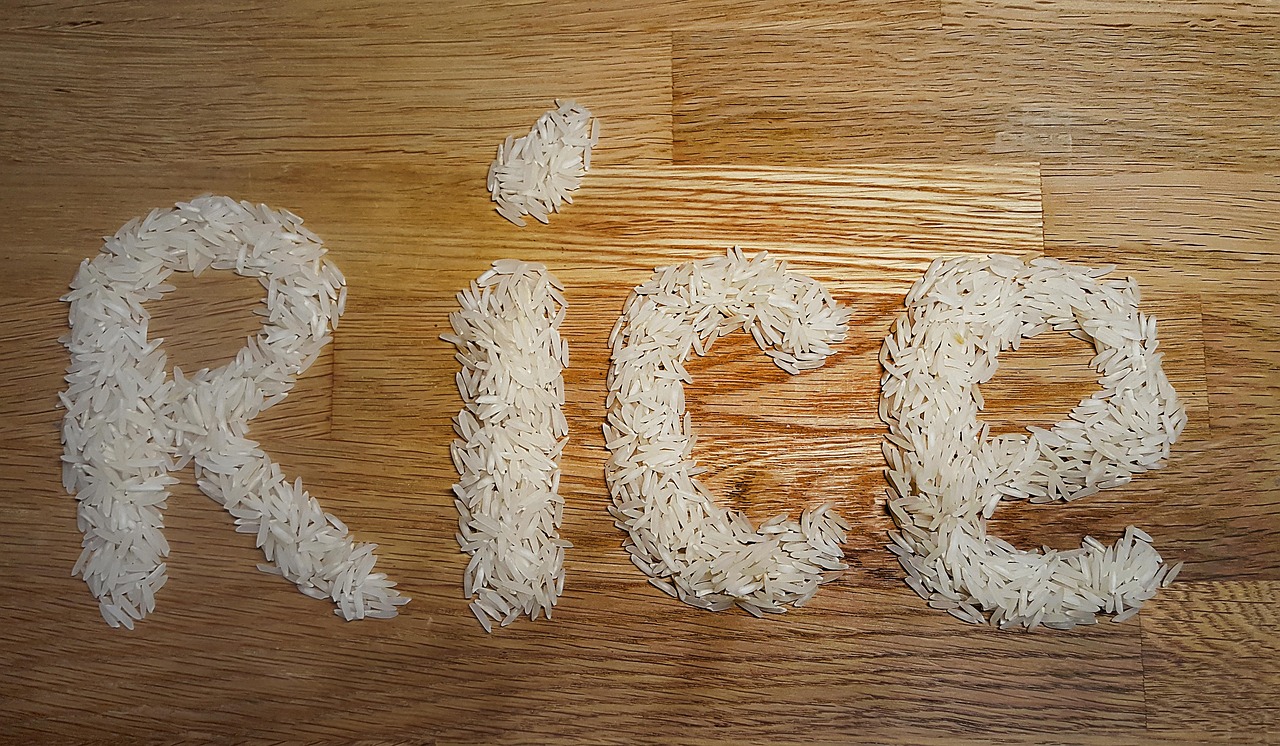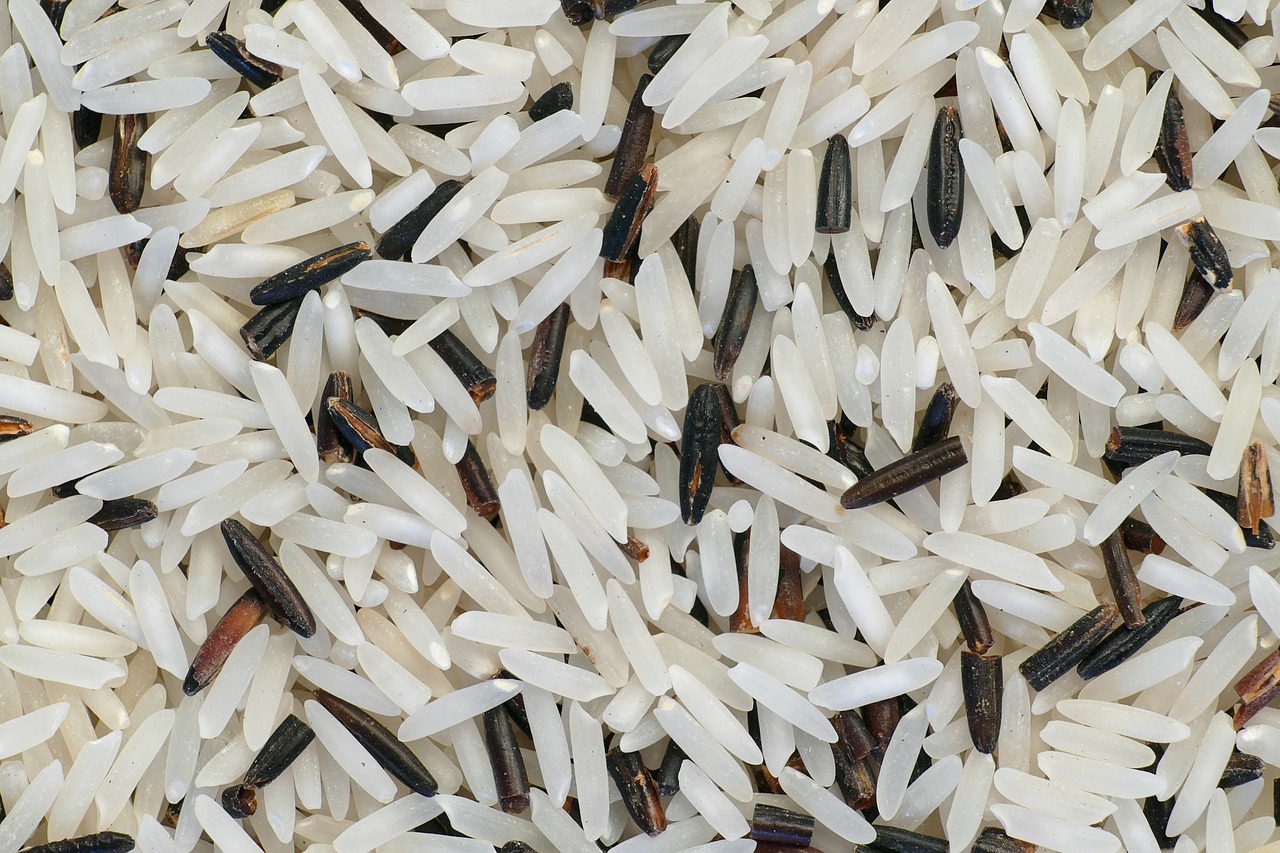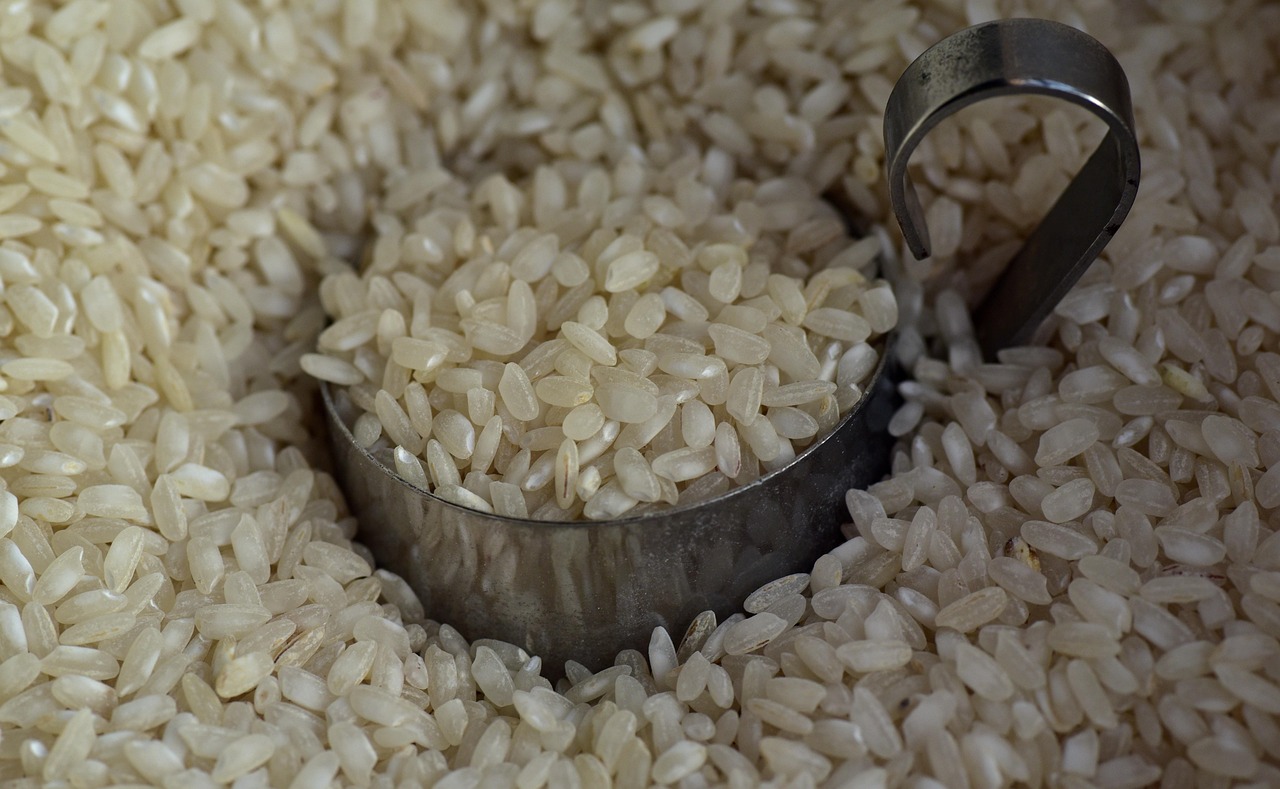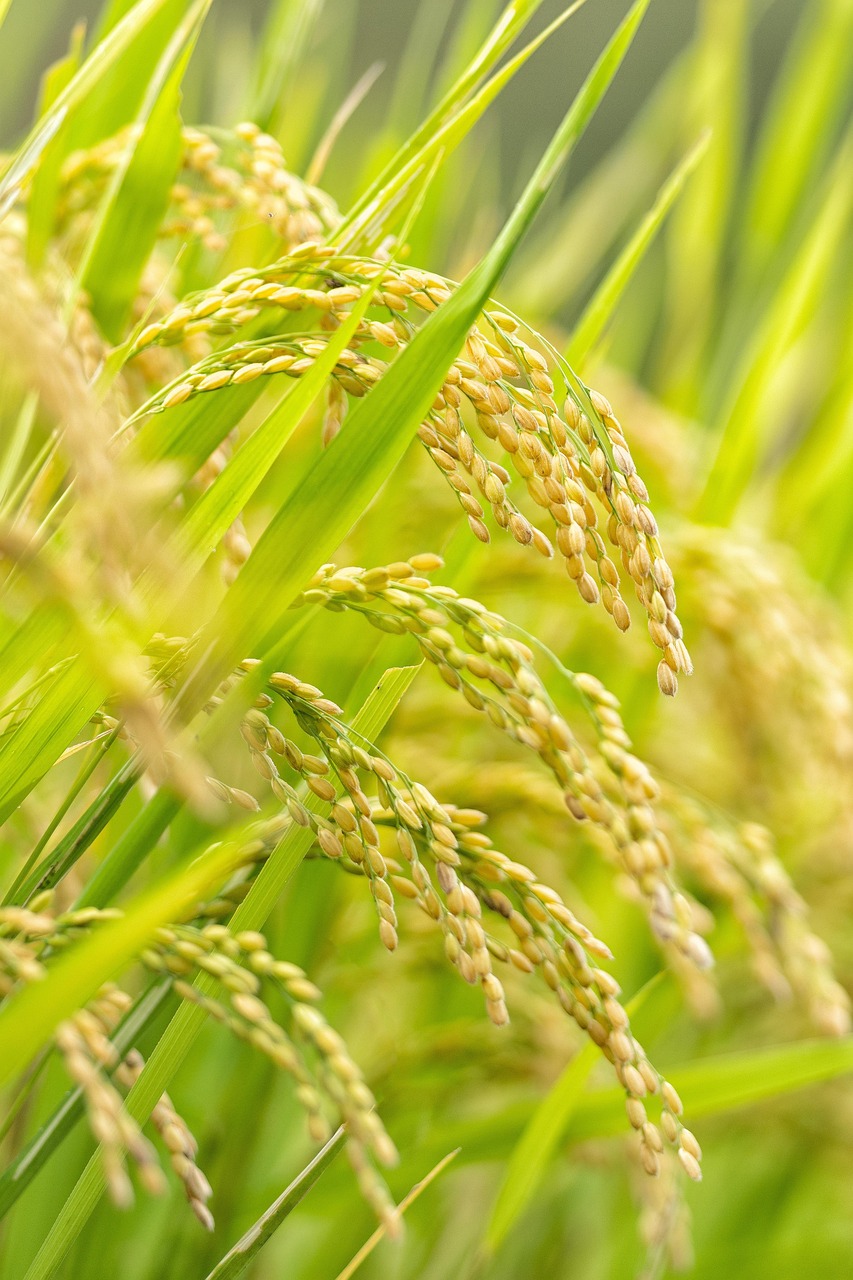Short grain Japanese rice has taken the culinary world by storm, and it’s easy to see why! Bursting with a unique texture and subtle sweetness, this versatile staple elevates any dish from ordinary to extraordinary. Whether you’re craving sushi, comforting donburi, or innovative fusion creations, mastering short grain Japanese rice unlocks endless delicious possibilities. By embracing this kitchen game-changer, you’ll discover new flavors and cooking techniques that enhance both everyday meals and special occasions. Get ready to transform your cooking and delight your taste buds with this extraordinary rice variety!
Discover the Magic of Short Grain Japanese Rice
When it comes to creating authentic and mouthwatering dishes, short grain Japanese rice stands out as an absolute kitchen hero. This type of rice is distinctively plump, sticky, and slightly sweet, making it the perfect base for countless Japanese recipes. Unlike long grain rice, which remains fluffy and separate when cooked, short grain Japanese rice clings together beautifully, enabling chefs and home cooks alike to shape it easily for sushi, rice balls, and more.
What makes short grain Japanese rice truly magical is its unique ability to absorb flavors while maintaining a tender yet chewy texture. This characteristic transforms simple meals into extraordinary experiences. Whether you’re crafting delicate sushi rolls or savoring a comforting bowl of donburi, this rice variety promises consistency and satisfaction with every bite.
Here’s why you’ll love short grain Japanese rice:
- Sticky yet tender texture for easy handling.
- Subtle sweetness that enhances overall flavor.
- Versatility in both traditional and modern dishes.
- Nutrient richness, providing essential energy and vitamins.
To get a quick idea of how it compares, check out the table below:
| Quality | Short Grain Japanese Rice | Long Grain Rice |
|---|---|---|
| Texture | Sticky, clumps easily | Light, fluffy |
| Flavor | Slightly sweet | Mild |
| Ideal Uses | Sushi, rice balls, donburi | Pilaf, stir-fries |
| Cooking Method | Needs precise water ratio | Less strict |
Embrace short grain Japanese rice, and unlock endless culinary possibilities that bring the vibrant flavors of Japan right to your table!

Why Short Grain Japanese Rice is a Kitchen Game-Changer
Short grain Japanese rice has revolutionized kitchens worldwide, and for good reason! This rice variety stands out not only for its unique sticky texture but also for its incredible versatility. Here’s why short grain Japanese rice is a true kitchen game-changer:
- Exceptional Stickiness: Unlike long-grain rice, short grain Japanese rice clings together perfectly after cooking. This makes it ideal for sushi, onigiri, and dishes where rice needs to hold its shape.
- Superior Flavor Profile: With a slightly sweet and nutty flavor, it enhances every meal, adding depth and authenticity to traditional Japanese dishes and beyond.
- Perfect Moisture Content: Its natural moisture makes it fluffy without being dry or mushy, creating a delightful mouthfeel that’s hard to beat.
- Adaptability: Whether you’re cooking a simple bowl of rice, preparing a hearty rice salad, or making desserts like mochi, short grain Japanese rice adapts beautifully to diverse culinary needs.
| Feature | Short Grain Japanese Rice | Long Grain Rice |
|---|---|---|
| Texture | Sticky and tender | Fluffy and separate |
| Flavor | Slightly sweet and rich | Mild and neutral |
| Best Uses | Sushi, rice balls, mochi | Pilaf, biryani, fried rice |
| Moisture Retention | High | Low |
In essence, incorporating short grain Japanese rice into your kitchen arsenal elevates your cooking, providing a perfect base from which countless delicious meals can be crafted. Its distinctive qualities make every bite memorable and bring a touch of culinary magic to your everyday dishes!
The Unique Texture and Flavor of Short Grain Rice
When it comes to short grain Japanese rice, its distinctive texture and flavor set it apart in the culinary world. Unlike long grain varieties, short grain rice boasts a plump, almost round shape that contributes to its signature sticky and tender consistency—ideal for dishes that require rice to cling together, such as sushi or onigiri.
Why is Short Grain Japanese Rice So Special?
- Sticky yet Fluffy Texture: Thanks to its higher starch content, especially amylopectin, this rice becomes wonderfully sticky once cooked. This texture allows the grains to bind perfectly without turning mushy, creating that satisfying chewiness.
- Subtle Sweetness: The natural sweetness of short grain Japanese rice offers a delicate flavor that complements rather than overwhelms any dish, making it extremely versatile.
- Moist and Glossy Appearance: Once cooked, short grain rice shines with a slight gloss, giving your meals an appealing, fresh presentation.
| Feature | Short Grain Japanese Rice | Long Grain Rice |
|---|---|---|
| Grain Shape | Short, round, and plump | Long and slender |
| Texture After Cooking | Sticky and tender | Light and fluffy |
| Flavor Profile | Mildly sweet and nutty | Neutral and dry |
Ultimately, the unique texture and flavor of short grain Japanese rice create a luxurious mouthfeel and a subtle taste that elevates every recipe. Whether used in traditional Japanese cuisine or creative global dishes, this rice guarantees a delightful eating experience every time.
Perfect Pairings: What Goes Best with Japanese Rice?
When it comes to short grain Japanese rice, pairing it with the right ingredients can elevate your meals from ordinary to extraordinary. This rice’s sticky, tender texture and slightly sweet flavor make it incredibly versatile, complementing a wide range of dishes.
Here are some perfect pairings to try:
- Fresh Seafood: Sushi, sashimi, and grilled fish beautifully highlight the subtle sweetness of short grain Japanese rice. The rice’s stickiness helps hold sushi rolls together, while its flavor balances delicate seafood.
- Savory Sauces: Teriyaki, soy sauce, miso, and ponzu add depth and umami that contrast perfectly with the neutral taste of the rice.
- Vegetables: Steamed or pickled veggies like edamame, daikon radish, and roasted sweet potatoes provide texture and vibrant flavors that work well with this rice variety.
- Protein Choices: Grilled chicken, tofu, or beef—especially when marinated—excel alongside short grain Japanese rice by soaking up sauces and creating satisfying mouthfeel combinations.
To illustrate the versatility, here’s a quick comparison:
| Dish Type | Ideal Pairing with Short Grain Japanese Rice | Flavor Profile |
|---|---|---|
| Sushi & Sashimi | Fresh fish, wasabi, pickled ginger | Clean, fresh, slightly sweet |
| Bento Box | Teriyaki chicken, steamed vegetables | Savory, rich, balanced |
| Rice Bowls | Miso-glazed tofu, scallions, sesame seeds | Umami, nutty, aromatic |
In summary, short grain Japanese rice is your perfect canvas—pair it with fresh, flavorful ingredients and watch your dishes transform into irresistible meals every time!

Mastering the Art of Cooking Short Grain Japanese Rice
Cooking short grain Japanese rice may seem simple, but perfecting it takes a bit of finesse. This staple demands care to unlock its signature stickiness and subtle sweetness, making your dishes truly shine. Here’s how to master this art step-by-step:
- Rinse Thoroughly: Start by rinsing the rice under cold water until the water runs clear. This removes excess starch, preventing the rice from becoming overly gummy while preserving the ideal sticky texture.
- Ideal Water Ratio: Use approximately 1.1 to 1.2 cups of water for every cup of rice. Unlike long-grain varieties, short grain rice absorbs water differently, so a precise ratio ensures perfect fluffiness.
- Soak Time Matters: Let the rice soak for 30 minutes before cooking. This allows the grains to absorb water evenly, resulting in a tender yet firm bite.
- Cooking Method: Whether using a rice cooker or stovetop, bring the water to a boil, then reduce to low heat and cover. Cook for about 15-20 minutes without lifting the lid. Then, let it rest off-heat for 10 minutes to finish steaming.
| Step | Tip | Why It Matters |
|---|---|---|
| Rinse | Use cold water until clear | Removes excess surface starch |
| Water Ratio | 1:1.1–1.2 (rice to water) | Ensures perfect moisture balance |
| Soaking | 30 minutes before cooking | Promotes even water absorption |
| Cooking | Low simmer, covered, no lid lifting | Retains steam and prevents drying |
| Resting | 10 minutes off heat | Allows rice to firm up nicely |
By following these steps, you’ll consistently achieve the coveted texture and flavor that make short grain Japanese rice a culinary highlight. Once you master the basics, you can confidently explore diverse recipes while knowing your rice will always be perfect!
Creative Recipes to Highlight This Versatile Staple
Short grain Japanese rice isn’t just a side dish—it’s a star ingredient that can elevate your cooking in countless delicious ways! Its sticky, tender texture and subtly sweet flavor make it incredibly versatile. Here are some creative recipes to showcase the magic of short grain Japanese rice:
- Sushi Rolls and Bowls: Embrace tradition with classic sushi rolls or modern poke bowls. The perfect stickiness of short grain Japanese rice holds your toppings beautifully, whether it’s fresh fish, avocado, or crisp veggies.
- Onigiri (Rice Balls): These portable delights are easy to make and endlessly customizable. Fill them with savory treats like pickled plum, salted salmon, or even spicy tuna for a snack that’s both convenient and satisfying.
- Rice Pancakes: Mix cooked short grain Japanese rice with eggs and scallions, then pan-fry for a crispy, chewy pancake that adds a unique twist to breakfast or appetizers.
- Takikomi Gohan: This seasoned rice dish combines mushrooms, vegetables, and soy sauce, simmered together with rice to produce a rich and comforting meal that’s packed with umami.
- Rice Pudding with a Japanese Twist: Use short grain Japanese rice to create a creamy, fluffy pudding infused with matcha or azuki beans for a delightful dessert.
By experimenting with these recipes, you’ll unlock new textures and flavors, turning simple meals into memorable experiences. Let your creativity shine and watch how short grain Japanese rice transforms every dish!
Health Benefits of Incorporating Japanese Rice into Your Diet
Incorporating short grain Japanese rice into your diet offers a tasty way to boost your overall health. This unique variety isn’t just prized for its delightful texture and flavor—it also packs several nutritional advantages worth considering.
Why Choose Short Grain Japanese Rice?
Firstly, short grain Japanese rice is a great source of complex carbohydrates. Unlike simple carbs, these provide sustained energy release, helping you stay active and focused throughout the day. Moreover, it is naturally gluten-free, making it an excellent choice for those with gluten sensitivities or celiac disease.
Nutritional Highlights:
- Rich in essential vitamins and minerals, including B vitamins such as thiamine and niacin, which support metabolism and brain health.
- Contains dietary fiber that aids digestion and contributes to a feeling of fullness, helping in weight management.
- Lower in fat and cholesterol-free, promoting heart health when consumed as part of a balanced diet.
How Does it Compare?
| Nutrient | Short Grain Japanese Rice | Long Grain White Rice | Brown Rice |
|---|---|---|---|
| Carbohydrates | Moderate | High | Moderate |
| Fiber | Moderate | Low | High |
| Gluten-Free | Yes | Yes | Yes |
| B Vitamins | High | Moderate | High |
| Fat | Very Low | Very Low | Low |
Additionally, short grain Japanese rice has a lower glycemic index compared to regular white rice, which helps in managing blood sugar levels—ideal for those mindful of diabetes risk.
By incorporating this versatile staple into your meals, you not only elevate your dishes but also enhance your nutritional intake. It’s a delicious step toward a healthier, balanced lifestyle!

Tips and Tricks for Storing and Handling Your Rice
Storing and handling short grain Japanese rice correctly ensures every grain maintains its signature texture and flavor. To keep your rice fresh and ready for perfect dishes, follow these practical tips:
- Store in an airtight container: This prevents moisture absorption and keeps out insects. Glass, plastic, or metal containers with tight seals work best.
- Keep it cool and dry: Store your rice in a cool, dark place away from heat sources like stoves or sunlight. Excessive heat can compromise quality.
- Avoid the fridge unless necessary: While refrigeration can extend shelf life, it may cause the rice to absorb odors and moisture unless sealed properly.
- Check for freshness: Short grain Japanese rice is best used within six months to a year. Older rice might lose its sticky texture essential for authentic recipes.
- Rinse before cooking: Always rinse your rice under cold water until the water runs clear. This removes excess starch, preventing clumping and ensuring fluffier results.
Here’s a quick comparison to help you with storage decisions:
| Storage Method | Ideal Duration | Best Practices | Notes |
|---|---|---|---|
| Airtight pantry storage | Up to 12 months | Keep cool and dry | Avoid direct sunlight |
| Refrigerator storage | Up to 6 months | Use airtight container | Prevent odor absorption |
| Freezer storage | Up to 1 year | Vacuum seal preferred | Thaw before cooking |
By mastering these storage and handling tips, your short grain Japanese rice will always be fresh, flavorful, and ready to transform any meal into an authentic Japanese culinary experience!
Transform Everyday Meals with Japanese Rice Variations
Elevate your daily meals by experimenting with short grain Japanese rice and its delightful variations! This versatile ingredient can transform even the simplest dishes into flavorful experiences. Here’s how you can bring creativity and tradition to your table:
Popular Japanese Rice Variations to Try:
| Variation | Description | Best Used For |
|---|---|---|
| Sushi Rice (Shari) | Seasoned with vinegar, sugar, and salt | Sushi rolls, hand rolls, chirashi bowls |
| Sekihan | Red rice mixed with azuki beans | Festive occasions, added nutrition |
| Genmai (Brown Rice) | Whole grain with a nutty flavor | Healthier alternatives, hearty bowls |
| Mochigome (Glutinous Rice) | Sticky rice perfect for sweets | Mochi, rice cakes, and desserts |
Creative Ways to Incorporate Variations:
- Elevate breakfast: Swap plain rice with sekihan for a colorful and nutrient-packed start.
- Lunchbox charm: Use sushi rice to make onigiri filled with your favorite ingredients.
- Dinner delight: Try genmai as a wholesome base for grilled vegetables and teriyaki.
- Sweet treats: Cook mochigome into irresistible homemade mochi.
By embracing these short grain Japanese rice variations, your meals become more exciting and diverse. Plus, each type offers unique textures and flavors that cater to any palate. So why stick to just plain rice when you can transform everyday dishes effortlessly? Give these variations a try and savor the delicious versatility of Japanese rice today!
Exploring Regional Dishes Featuring Short Grain Japanese Rice
Short grain Japanese rice is more than just a staple—it’s the heart of many beloved regional dishes across Japan, each showcasing this rice’s unique texture and flavor. Delving into these dishes unlocks a world of culinary diversity that elevates your cooking and dining experience.
Here are some standout regional specialties that highlight short grain Japanese rice:
- Hokkaido’s Ika Donburi: Fresh squid served over warm, sticky short grain rice, emphasizing the rice’s perfect chewiness that complements the tender seafood.
- Kansai’s Takikomi Gohan: A seasoned rice dish mixed with vegetables, mushrooms, and chicken, showcasing how short grain rice absorbs flavors while maintaining its fluffy texture.
- Kyushu’s Mentaiko Onigiri: Rice balls filled with spicy cod roe, where the rice’s stickiness ensures the onigiri holds its shape and bursts with flavor.
- Tohoku’s Kiritanpo: Grilled rice sticks made from mashed short grain rice, perfect for dipping in savory hot pots.
| Region | Dish Name | Key Ingredients | Specialty Highlight |
|---|---|---|---|
| Hokkaido | Ika Donburi | Fresh squid, short grain rice | Enhances seafood texture with sticky rice |
| Kansai | Takikomi Gohan | Chicken, mushrooms, veggies | Flavor infusion with fluffy rice texture |
| Kyushu | Mentaiko Onigiri | Spicy cod roe, rice | Perfect stickiness for handheld convenience |
| Tohoku | Kiritanpo | Mashed short grain rice | Grilled texture with comforting warmth |
By exploring these regional delights, you’ll appreciate how short grain Japanese rice’s versatility and distinctive qualities adapt beautifully across Japan’s culinary landscape. Whether you’re craving a simple rice bowl or a sophisticated dish, this rice variety promises authenticity and deliciousness every time. Embrace these traditions and let short grain Japanese rice inspire your next meal adventure!

Your Journey to Deliciously Perfect Dishes Starts Here
Embarking on your culinary adventure with short grain Japanese rice opens a world of delicious possibilities! This beloved staple, known for its sticky texture and subtle sweetness, is your perfect partner to elevate everyday meals into extraordinary dishes. Whether you’re a seasoned cook or a kitchen novice, mastering short grain Japanese rice can transform your cooking game entirely.
Here’s how to kick-start your journey:
- Start Simple: Begin by perfecting the basic cooking method. Rinse the rice until the water runs clear, soak it briefly, then cook using the right water-to-rice ratio for that signature chewiness.
- Experiment with Cuisines: From traditional sushi and onigiri to contemporary stir-fries and rice bowls, short grain Japanese rice adapts beautifully.
- Pair Thoughtfully: Enhance your dishes with ingredients like fresh seafood, savory soy sauce, crisp vegetables, or delicate pickles.
- Try Different Cooking Tools: A rice cooker can take the guesswork out, but a heavy pot with a tight lid works just as well.
Quick comparison at a glance:
| Method | Ease | Texture Outcome | Time Required |
|---|---|---|---|
| Rice Cooker | Very easy | Consistently sticky | ~40 minutes |
| Stovetop Pot | Moderate skill | Slightly variable | ~30 minutes |
| Instant Pot | Easy | Firm and slightly sticky | ~25 minutes |
By embracing these steps, you’ll soon unlock the secret to perfectly cooked short grain Japanese rice—delivering dishes that are not just satisfying, but truly unforgettable. Start your delicious journey today and watch your meals come alive with authentic flavor and texture!
Frequently Asked Questions
What makes short grain Japanese rice different from other types of rice?
Short grain Japanese rice is unique due to its sticky and slightly sweet texture, which sets it apart from other rice varieties. This stickiness is ideal for dishes that require the rice to hold together, such as sushi, onigiri, and various Japanese meals. Its versatility and ability to absorb flavors make it a staple ingredient in Japanese cuisine and a favorite for those seeking perfect, flavorful dishes.
How should I cook short grain Japanese rice for the best results?
To cook short grain Japanese rice perfectly, rinse the rice until the water runs clear to remove excess starch. Use a 1:1.2 rice to water ratio for stovetop cooking or follow your rice cooker’s instructions. Let the rice soak for 30 minutes before cooking to ensure even moisture absorption. After cooking, let it steam for 10 minutes without opening the lid to achieve that signature fluffy yet sticky texture.
Can short grain Japanese rice be used in non-Japanese dishes?
Absolutely! While short grain Japanese rice is a cornerstone of Japanese cuisine, its sticky texture and subtle flavor make it incredibly versatile for other culinary uses. It can be used in salads, risottos, desserts like rice pudding, or even as a hearty base for stir-fries and casseroles. Its unique texture adds a delightful twist to any dish requiring tender, cohesive grains.
Is short grain Japanese rice healthy to include in my diet?
Short grain Japanese rice is a healthy carbohydrate source that provides essential energy for your body. It contains moderate amounts of protein and some vitamins and minerals. Because it is often unpolished or minimally processed, it retains more nutrients. However, like all rice, it should be enjoyed as part of a balanced diet with plenty of vegetables, proteins, and healthy fats for optimal nutrition.
Where can I buy authentic short grain Japanese rice?
You can find authentic short grain Japanese rice at Asian grocery stores, specialty food markets, and online retailers that specialize in Japanese ingredients. Look for reputable brands that specify the rice’s origin for guarantee of quality. Authentic Japanese rice is usually labeled as Koshihikari or by other regional names, ensuring you get that perfect texture and flavor for your dishes.
